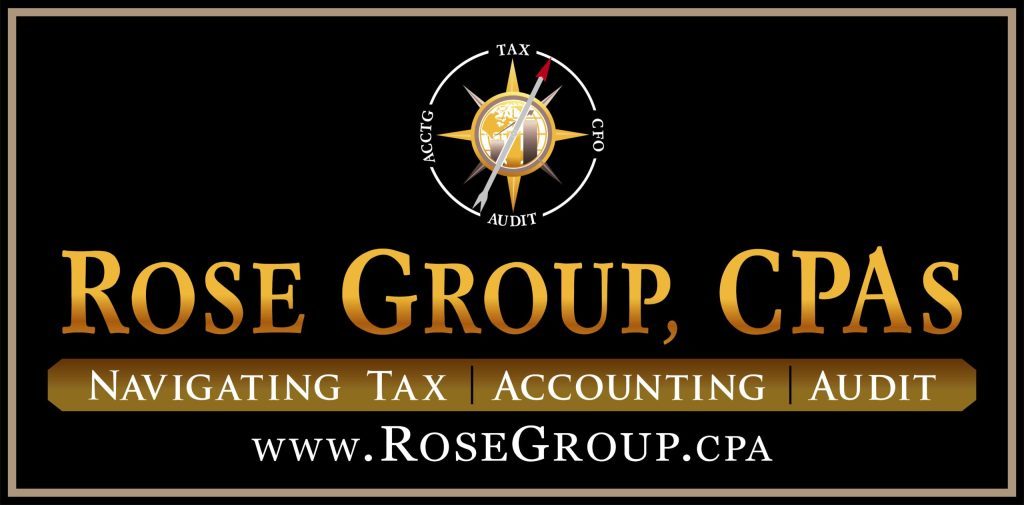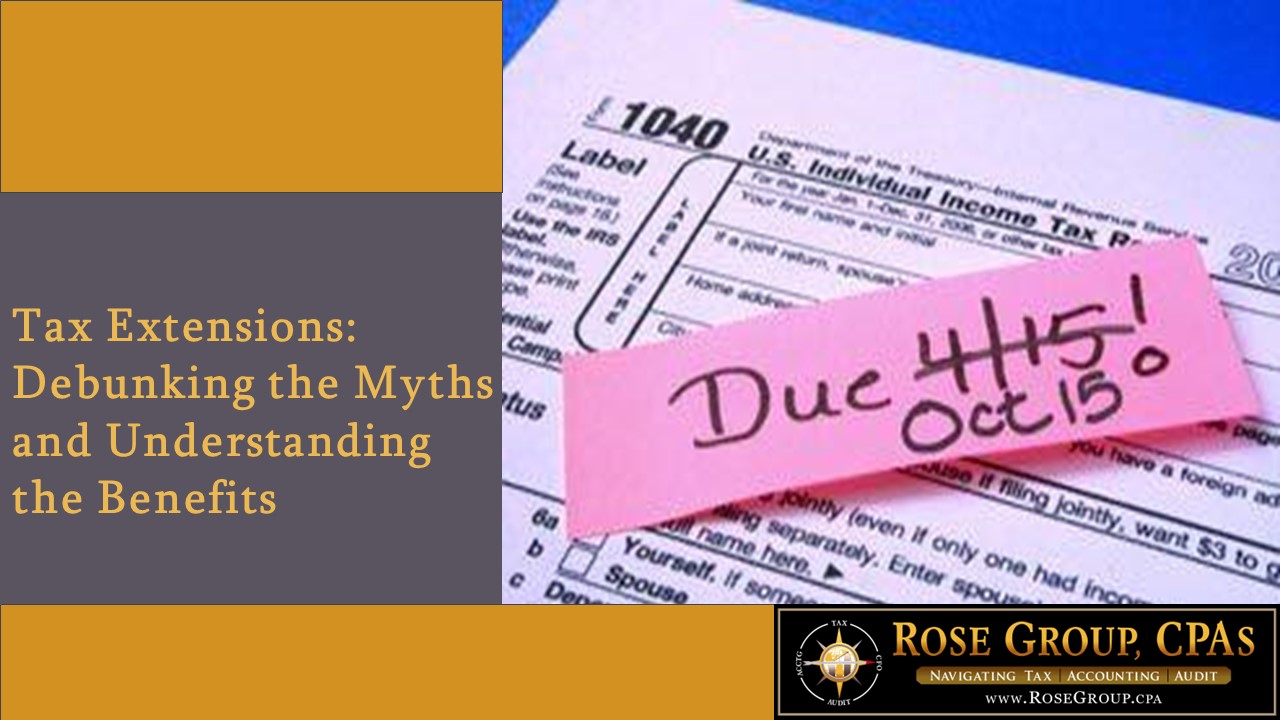It is approaching three months past the April 15 tax filing deadline. Many businesses and individuals working with tax and accounting services CPAs face the challenge of gathering all necessary documentation to file their taxes accurately by April 15. In this rush, the option to file for a tax extension is often seen as a last resort, the taxpayer has a lingering concern that it might raise red flags with the IRS or cause future tax problems. However, these worries are largely unfounded. Let’s debunk the myths surrounding tax extensions and understand the benefits they offer.
Myth 1: Filing a Tax Extension Raises Red Flags with the IRS
Fact: Filing an Extension is a Common and Accepted Practice
Filing a tax extension is a completely legitimate and commonly used option that the IRS itself provides. Every year, millions of taxpayers, both individuals and businesses, file for extensions. The IRS recognizes that taxpayers may need additional time to ensure their returns are accurate and complete, especially in complex financial situations and the changing tax laws.
Myth 2: Tax Extensions Increase the Risk of an Audit
Fact: There is No Evidence That Extensions Trigger Audits
There is no evidence to support the idea that filing a tax extension increases the likelihood of an audit. The IRS selects returns for audits based on specific criteria and algorithms unrelated to whether a taxpayer has filed for an extension. Ensuring your tax return is accurate and complete, even if it means taking extra time, is more likely to reduce audit risk than rushing and making errors.
Myth 3: Extensions Cause Delays in Refunds and Tax Problems
Fact: Extensions Provide More Time to File, Not to Pay
Filing an extension gives you more time to file your tax return, but it does not extend the time to pay any taxes owed. This distinction is crucial. If you anticipate owing taxes, you should make an estimated payment by the original tax deadline to avoid interest and penalties. By doing so, you can take the extra time to prepare your return without worrying about additional costs or issues.
The IRS Timeline: 10 Months to File
The IRS actually provides taxpayers with 10 months to file their returns from the end of the tax year. Expecting individuals and businesses to compress this timeline into just 10 weeks is not only impractical but also potentially detrimental. Shrinking the time frame for tax preparation can lead to errors, missed deductions, and unnecessary stress. Three months post the first filing deadline, we have several taxpayers still waiting on K-1’s from partnerships and other investments. This has increasing become the norm.
Increased Complexity of Tax Preparation
Recent years have seen sweeping changes to tax law, increasing the complexity of tax and accounting services for CPAs. Notable legislative acts include:
- The Tax Cuts and Jobs Act (TCJA):Introduced significant changes to individual and corporate tax rates, deductions, and credits.
- The CARES Act: Provided numerous tax relief measures in response to the COVID-19 pandemic, including the Paycheck Protection Program and Employee Retention Credit.
- The Consolidated Appropriations Act: Continued and expanded many of the relief measures from the CARES Act.
- The American Rescue Plan Act (ARPA): Included provisions for stimulus payments, expanded child tax credits, and unemployment benefits.
- The Infrastructure Investment and Jobs Act: Aimed at funding infrastructure projects but also contained several tax-related provisions.
- The Inflation Reduction Act: Introduced measures affecting corporate taxation and energy-related tax incentives.
- The SECURE Act and SECURE 2.0: Enacted significant changes to retirement planning and savings incentives.
Each of these legislative acts has added layers of complexity to tax preparation, requiring CPAs to stay continually updated and adapt their strategies to ensure compliance and optimal outcomes for their clients.
Benefits of Filing a Tax Extension
- Accuracy and Completeness:
One of the primary benefits of filing for an extension is ensuring the accuracy and completeness of your tax return. Having additional time to gather necessary documents, review financial transactions, and consult with tax professionals can help prevent mistakes that could lead to audits or penalties.
- Reduced Stress:
Tax season can be stressful, especially for those with complex financial situations. Filing for an extension provides breathing room, allowing you to manage the process without the pressure of the looming deadline.
- Professional Assistance:
For many taxpayers, particularly businesses and individuals with intricate financial affairs, professional tax assistance is crucial. Filing an extension can give your CPA or tax advisor the time needed to provide thorough and thoughtful guidance, ensuring your return is optimized and compliant with the latest tax laws.
- Strategic Tax Planning:
An extension can be an opportunity for strategic tax planning. This extra time allows for better evaluation of tax-saving opportunities and ensures that all allowable deductions and credits are accurately claimed.
Our Process to File for an Extension
Filing for a tax extension is straightforward. We complete the appropriate extension form and electronically file. Filing the extensions by the original tax deadline will automatically grant you an extension of six months to file your return. The amount due with extension is more complicated. We calculate this based on the information received so far and by using the prior year figures where current supporting tax documents have not been received or made available to us. We provide the amount due with extension late March to early April.
Filing a tax extension is a valuable tool that can help ensure the accuracy and completeness of your tax return without raising red flags or causing problems with the IRS. It provides necessary time for careful preparation, reducing stress and potentially lowering the risk of errors. If you find yourself needing more time this tax season, remember that filing for an extension is a prudent and widely accepted practice. Compressing a 10-month process into just 10 weeks is unrealistic and can lead to mistakes. Rose Group CPAs are here to guide you through the tax and accounting services process and help you make the most informed decisions for your financial well-being.

